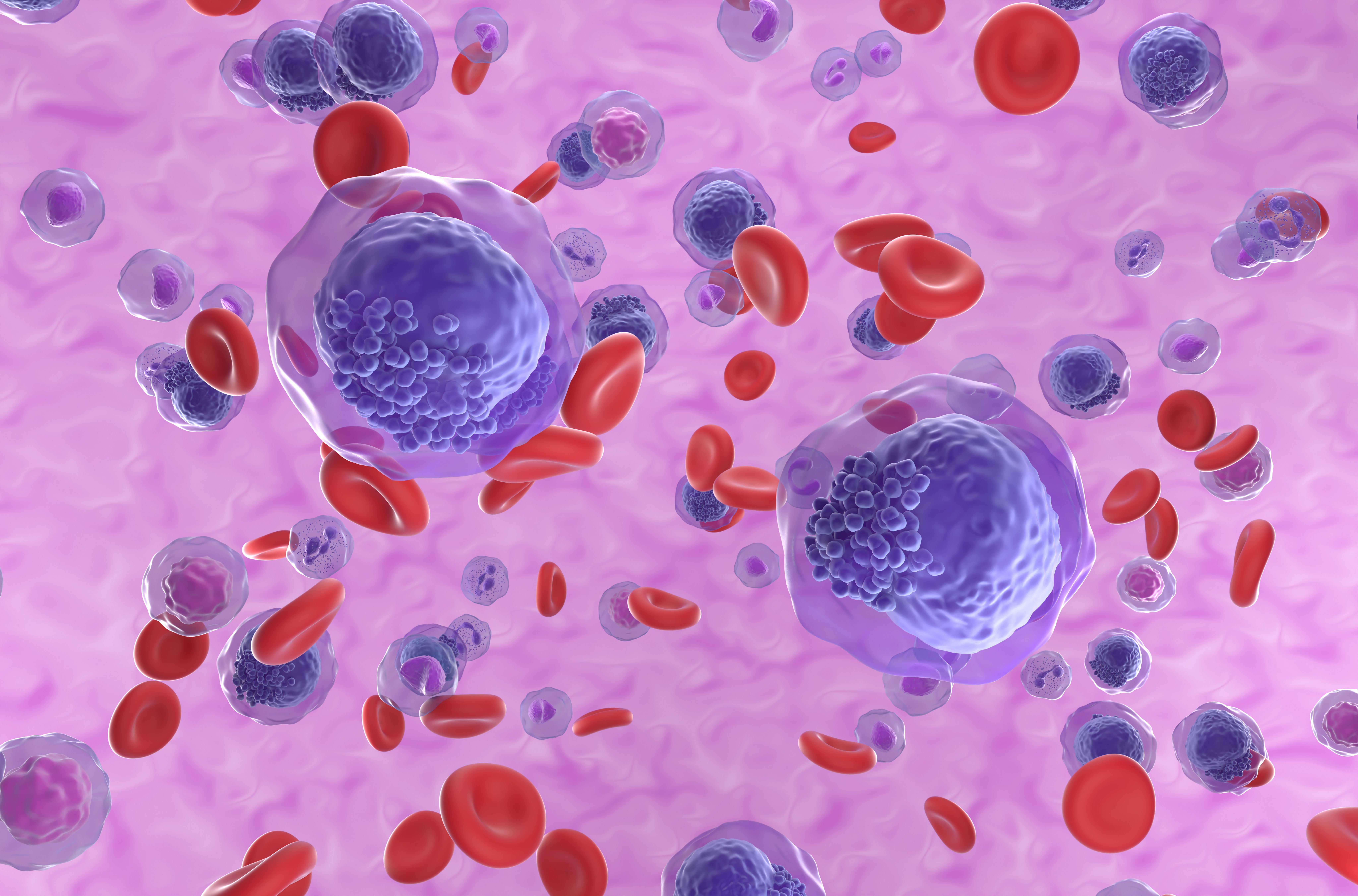FDA Receives New Drug Application for Ziftomenib in NPM1-Mutant R/R AML
Ziftomenib’s FDA application for relapsed/refractory NPM1-mutant acute myeloid leukemia is supported by data from the KOMET-001 trial.
US FDA

- A new drug application (NDA) seeking the approval of ziftomenib has been submitted to the FDA.
- This indication is for the treatment of adult patients with relapsed/refractory (R/R) acute myeloid leukemia (AML) displaying NMP1 mutations.
- Results of the phase 2 KOMET-001 trial (NCT04067336) support this NDA submission.
An NDA has been submitted to the FDA seeking approval for ziftomenib, an investigational oral Menin inhibitor, for adult patients with R/R AML harboring NPM1 mutations.1
The FDA is expected to complete its 60-day filing review by the second quarter of 2025, and Kura Oncology, the drug’s developer, has requested a priority review, which, if granted, would set a target action date within 6 months of NDA acceptance.
“This NDA submission brings us one step closer to our goal of advancing ziftomenib to market as a new therapeutic option for adult patients with relapsed/refractory NPM1-mutant AML, a devastating disease for which there are currently no FDA-approved targeted therapy options,” Troy Wilson, PhD, JD, president and chief executive officer of Kura Oncology, stated in a news release. “We look forward to working closely with the FDA throughout the review process and are optimistic about the potential of ziftomenib to impact patients with NPM1-mutant AML.”
Ziftomenib previously received breakthrough therapy, fast track, and orphan drug designations in AML from the FDA.1
Acute myeloid leukemia (AML) cells: © LASZLO - stock.adobe.com

The NDA submission is supported by results from the phase 2, registration-directed KOMET-001 trial.2,3 Here, ziftomenib met the primary end point of complete remission (CR) plus CR with partial hematologic recovery (CRh), demonstrating a favorable risk-benefit profile and safety consistent with earlier data. Notably, in the phase 1b portion of KOMET-001, 35% of patients with NPM1 mutations (n = 20) treated at the recommended phase 2 dose (600 mg) achieved CR.
Treatment-emergent grade 3 or greater adverse events were consistent with previous reports in this patient's population and included anemia (24%), febrile neutropenia (22%), pneumonia (19%), differentiation syndrome (15%), and more. Differentiation syndrome led to the cessation of enrollment for patients with KMT2A rearrangements due to safety concerns.
The multicenter, open-label, multi-cohort, phase 1/2 KOMET-001 trial is evaluating ziftomenib in adult patients with R/R AML.3 The phase 1 study was conducted at 22 hospitals in France, Italy, Spain, and the US.
Enrollment was open to patients aged 18 years or older with an ECOG performance status of 2 or less. For phase 1a of the study, patients received ziftomenib at a dose of 50 to 1000 mg orally once daily in 28-day cycles. Phase 1b included patients with NPM1 mutations or with KMT2A rearrangements who were randomly assigned using third-party interactive response technology to 2 parallel dose cohorts (200 mg and 600 mg ziftomenib).
The primary end points for phase 1a of the study were maximum tolerated dose or recommended phase 2 dose. Safety, remission rates, and pharmacokinetics supporting recommended phase 2 dose determination were the primary end points for phase 1b.
Additional development of ziftomenib includes the phase 3 KOMET-017 program, which will evaluate ziftomenib in combination with either intensive (7+3) or low-intensity venetoclax (Venclexta) plus azacitidine regimens in newly diagnosed patients with NPM1 mutations or KMT2A rearrangements.2 Both trials are slated to begin enrollment in the second half of 2025.
References
Kura Oncology and Kyowa Kirin announce submission of new drug application for ziftomenib to FDA. News release. Kura Oncology. April 8, 2025. Accessed April 8, 2025. https://tinyurl.com/5n8cdfyn
Kura Oncology and Kyowa Kirin announce positive ziftomenib monotherapy registrational trial and positive FDA feedback for upcoming frontline combination trial designs. News Release. Kura Oncology. February 5, 2025. Accessed April 8, 2025. https://tinyurl.com/534aspw5
Wang ES, Issa GC, Erba HP, et al. Ziftomenib in relapsed or refractory acute myeloid leukaemia (KOMET-001): a multicentre, open-label, multi-cohort, phase 1 trial. Lancet Oncol. 2024;25(10):1310-1324. doi:10.1016/S1470-2045(24)00386-3








